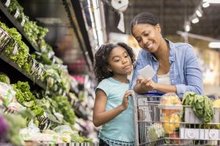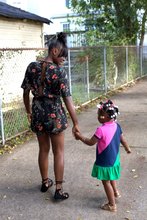Found 25 resources.
0
0
0
Marjorie Sims, Sarah Haight
January 2024
Focused on the 23,306 young parents (ages 18 to 24) and their families in New Mexico, this report provides a framework for organizations in New Mexico to collaborate more effectively and offers a plan of action to assess these efforts and strengthen impact for families.
This publication aims to deepen understanding about the demographics, aspirations, and needs of young parents; highlights practices and policies aligned with a two-generation (2Gen) approach; showcases opportunities to streamline this work by forging connections between...
Topics: Child welfare, Dual-generation, dual-generation initiative, Early childhood, Family engagement, Healthy homes, Housing
 Shared by Molli Caite Hughes
on Jan 18, 2024
Shared by Molli Caite Hughes
on Jan 18, 2024 0
0
0
Topics: Attendance, COVID-19, Early childhood, Education, Family engagement, Housing, Low-income, Out-of-school time, Youth
 Shared by Kirsten Greenwell
on Jun 17, 2021
Shared by Kirsten Greenwell
on Jun 17, 2021 0
0
0
There’s a growing body of evidence that positively links affordable, stable, and quality housing with improved educational outcomes for children. That research continually points to the positive return on investment for the earliest possible intervention. Housing authorities are uniquely poised to help change the trajectory for low-income children who typically arrive in kindergarten already substantially behind their peers. We can leverage unique assets that other systems players cannot.
Topics: Early childhood, Education, Housing, Out-of-school time, Partnerships
 Shared by Housing Is
on May 28, 2019
Shared by Housing Is
on May 28, 2019 0
0
0

Research shows that clinical care is only one factor that impacts population health and that a collection of other factors – including the natural and built environment where people live, education economic stability, food, and community and social context – grouped under the term social determinants of health (SDOH), have significantly more influence on care utilization, outcomes, and population health. Together, these factors account for 60% of preventable mortality.
Topics: Child welfare, Early childhood, Health, Low-income, Medicaid / Medicare
 Shared by Housing Is
on May 2, 2019
Shared by Housing Is
on May 2, 2019 0
0
0
Moving Health Care Upstream (MHCU) is based on the belief that health systems can address persistent and costly health inequities by moving “upstream”—beyond the walls of hospitals and clinics and into the communities, collaborating with community-based organizations to address the root causes of disease. The various areas of work within MHCU share a common focus-supporting hospitals and community stakeholders in testing and spreading strategies to move upstream, and sharing “what works” to inform the field and accelerate the upstream movement in the field as a whole. Policy Learning Labs are...
Topics: Child welfare, Early childhood, Food insecurity, Green, Health, Housing, Legislation & Policy, Nutrition, Partnerships, Youth
 Shared by Housing Is
on May 1, 2019
Shared by Housing Is
on May 1, 2019 0
0
0

Founded in 1995 as Project Women, Family Scholar House (FSH) provides comprehensive, holistic services for disadvantaged single parents, their children, and foster alumni. The nonprofit seeks to end the cycle of poverty and transform communities by empowering families and youth to succeed in education and life-long self-sufficiency. FSH provides supportive housing, educational programming, and participant advocacy to help families gain independence.
Topics: Dual-generation, Early childhood, Education, Homelessness, Housing, Low-income, Partnerships, Place-based, Post-secondary, South, Stability
0
0
0

Houston children continue to be poisoned by lead even though childhood lead poisoning is considered the most preventable environmental disease among young children. In the past three years, almost 1,200 Houston children between 0 and 72 months old were found to have lead in their blood above the reference value of concern set by Centers for Disease Control and Prevention. The Houston Health Department (HHD) has hosted the Lead-Based Paint Hazard Control Program (LBPHCP) for over 25 years, with the goal of providing a lead-safe home environment through home investigations and home lead...
Topics: Early childhood, Health, Housing, Lead, Partnerships, Safety
 Shared by Housing Is
on Apr 8, 2019
Shared by Housing Is
on Apr 8, 2019 0
0
0

Managing director of Ascend at the Aspen Institute discusses the role of women in public health policy-making
Topics: Dual-generation, Early childhood, Family engagement, Mental health, Pre-natal, Research
0
0
0
Released bi-monthly, each issue of the ZERO TO THREE Journal focuses on a critical topic within the early childhood development field. Journal articles are carefully composed to present current knowledge, latest research, and practical advice to help early childhood professionals do their best work in support of infants and toddlers.
Topics: Child welfare, Dual-generation, Early childhood, Homelessness, Housing, Low-income, Research, Safety
0
0
0
This brief presents a new approach to support the development of early math skills in young children. The approach synthesizes the influence of parents, home environment, and children’s health care providers. The brief draws on research to explain (1) why it is important to support early math development, (2) what early math is (and isn’t), (3) how early math and literacy development intertwine, and (4) the important role parents play in their child’s development. The brief ends with a description of a promising approach to support early childhood math development that leverages communication...
Topics: Child welfare, Early childhood, Education, Health, Literacy, Partnerships
 Shared by Housing Is
on Mar 18, 2019
Shared by Housing Is
on Mar 18, 2019 0
0
0

For many years, the vulnerabilities of children experiencing homelessness have been glossed over on the assumption that their innate resilience would overcome the impact of homelessness. As someone who worked in the field, I would often hear, “Oh, they’ll never remember.” Today we know better. We know more about how the brain develops and about how trauma impacts brain development. There is a growing recognition among providers that these early years are critical for establishing a foundation for emotional, mental, and physical wellbeing, and that we don’t get a second chance at early...
Topics: Early childhood, Education, Homelessness, Housing, Low-income, Research, Safety, Stability
 Shared by Housing Is
on Feb 21, 2019
Shared by Housing Is
on Feb 21, 2019 0
0
0
Times are changing rapidly for families—our households, work and the workforce do not look like they did just a decade ago. Challenges and barriers for parents continue to grow – skyrocketing costs of health care and child care, lack of flexibility at the workplace, and less time at home. Working parents have to balance their budget and time across an ever-changing landscape of needs: from caring for themselves, their children, and older family members, to affording quality child care and paying household bills. Removing barriers so families can care for their loved ones requires us to...
Topics: Child welfare, Dual-generation, Early childhood, Family engagement, Health, Legislation & Policy, Low-income, Preventative care
0
0
0
A Summary of Results from the MIHOPE and MIHOPE-STRONG Start Studies of Evidence-Based Home Visiting
A healthy birth and positive experiences in early childhood can promote health and development. One approach that has improved outcomes for children and their parents is home visiting, which provides individually tailored support, resources, and information to expectant parents and families with young children. This brief summarizes recently published reports from two national studies of evidence-based early childhood home visiting: the Mother and Infant Home Visiting Program Evaluation (MIHOPE) and MIHOPE-Strong Start.
Topics: Child welfare, Dual-generation, Early childhood, Home visiting, Metrics, Partnerships, Place-based, Preventative care, Research
0
0
0
Teachers know that children learn better and are more likely to graduate when they live in a stable, affordable home.
Topics: Child welfare, Early childhood, Education, Housing, Partnerships, Youth
0
0
0
According to the Institute for Women’s Policy Research, 26% of undergraduate students--about 4.8 million students--are raising dependent children. Students of color are more likely to be parents; additionally, about 70% of parenting students are women. These students are balancing many competing demands: attending classes, keeping up with schoolwork, and caring for children. College and child care are costly, with the average cost of child care ranging between $8,000-$35,000 each year. As a result, parenting students are more likely to experience food and housing insecurity than students who...
Topics: Dual-generation, Early childhood, Education, Housing, Partnerships, Post-secondary, Youth
0
0
0

Women with children, especially, stay hidden in fear of losing custody of their children. As a result, we will never see them camping in tents or in downtown parks.
Topics: Early childhood, Homelessness, Housing, Legislation & Policy, Low-income, Safety, Stability
0
0
0
Housing quality, instability, and unaffordability threaten the well-being of millions of children across the nation. Research shows that housing is the first rung on the ladder to economic opportunity and that a person’s access to opportunity is intrinsically linked with that of the community where they live. As home prices increase, the gap between rents and incomes continues to widen, and nearly half of today’s renters are cost burdened. Child welfare professionals, educators, and pediatricians can strengthen their work by understanding the central importance of housing as a determinant of...
Topics: Child welfare, Early childhood, Health, Housing, Research, Safety
0
0
0
Stricter work requirement policies for the Supplemental Nutrition Assistance Program (SNAP) at the federal level were left out of the recently passed farm bill, but state policymakers are still considering whether to expand or establish their own work requirements for SNAP and Medicaid, with the goal of incentivizing employment. There’s no question that good jobs help spur upward mobility. But if we are serious about helping people work, we have to get serious about helping people improve their skills.
Topics: Child welfare, Cost effectiveness, Dual-generation, Early childhood, Food insecurity, Legislation & Policy, Low-income, Research, Stability, Workforce development
0
0
0
Using a two-generation (2Gen) framework, Medicaid can be designed to support the social capital, health and well-being, educational attainment, and economic security of children and families, together, so they can maximize their health and thrive. This checklist outlines specific Medicaid policies and design choices adopted in Colorado to implement a 2Gen approach to improve the lives of children and families.
Topics: Dual-generation, Early childhood, Family engagement, Health, Low-income, Medicaid / Medicare
0
0
0
Shining a light on supportive approaches to noncustodial parenting, specifically by looking at Colorado’s successful CO-PEP program.
Topics: Dual-generation, Early childhood, Family engagement, Partnerships
0
0
0
With collectively more than 100 years of policy expertise and values-based leadership between us, Ascend at the Aspen Institute and the Housing Opportunity and Services Together initiative at the Urban Institute partnered to develop a set of recommendations on how to harness assisted housing and public-private housing partnerships for better outcomes for families.
Topics: Dual-generation, Early childhood, Education, Family engagement, Health, Housing, Low-income, Place-based, Research, Stability
0
0
0
The health care system is transforming to deliver value and maximize health across a patient’s lifespan. In this new landscape, there is rapid adoption of health technology to deliver patient-centered, whole person care. This issue brief explores elements for technology applications emerging to “close the loop” between clinical and community services and presents accelerators and challenges to their adoption.
Topics: Child welfare, Data sharing, Early childhood, Health, Partnerships, Youth
0
0
0
Young people are the workers of today and tomorrow. But those who become parents in their teenage years and early 20s, just as they are getting started in the world of work, are often confronted with a harsh reality: odds stacked against their ability to earn, learn and raise a family, which can threaten their children’s future as well as the strength of our communities.
Topics: Early childhood, Education, Legislation & Policy, Post-secondary, Pre-natal, Research, Workforce development, Youth
0
0
0
This short document provides basic information to help housing and homeless assistance providers advocate with their families and youth for appropriate educational services, from birth through higher education. The rights and protections outlined here apply to all children and youth experiencing homelessness, as defined by the education subtitle of the McKinney-Vento Act.
Topics: Child welfare, Early childhood, Education, Homelessness, Legislation & Policy, Low-income, School-readiness
 Shared by Housing Is
on Aug 9, 2018
Shared by Housing Is
on Aug 9, 2018 
